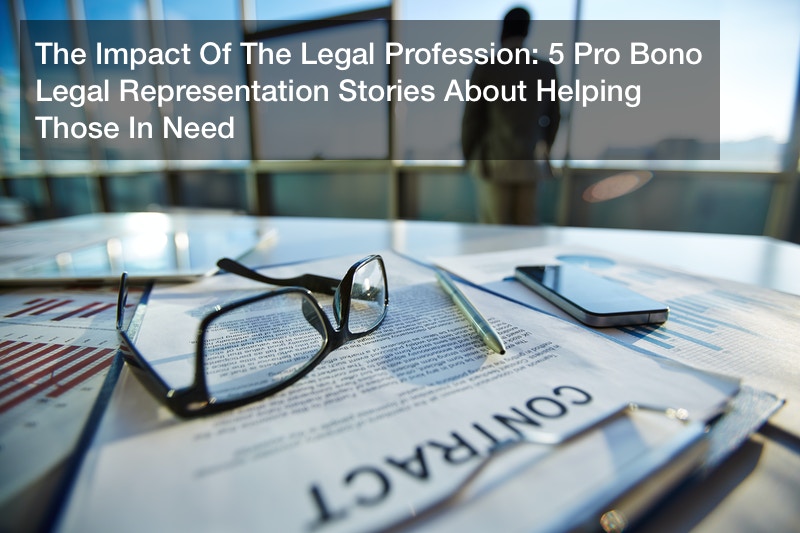
Understanding the key terms involved in filing a truck accident claim is crucial in navigating the legal process effectively. Truck accidents often involve complex investigations, making it imperative to grasp the terminologies used by legal and insurance professionals. This article will cover essential terminologies and address common concerns of individuals pursuing such claims, helping them proceed with clarity and confidence as they work with a truck accident attorney through the process.
What are the First Steps After a Truck Accident?
1.1 Reporting the Accident
Reporting a truck accident to the authorities is a critical first step in any claim process. It ensures that an official record is created, which will be crucial for legal proceedings or insurance claims.
Timely reporting helps in gathering accurate information from witnesses and involved parties while the details are still fresh.
The process usually involves calling emergency services and providing them with the necessary details about the accident. Information such as the location, time, and nature of the accident should be communicated clearly to the dispatcher. This report becomes an essential document later on, especially when establishing facts and accountability in the accident.
Failing to report an accident can complicate claims, as insurance companies often require an official report. Moreover, not reporting can lead to legal penalties or the loss of compensation rights. Therefore, understanding the procedure and importance of reporting is vital for anyone involved in a truck accident.
1.2 Gathering Evidence at the Scene
Gathering evidence at the scene of a truck accident is an essential activity for building a robust claim. Photographic evidence of the accident scene, including vehicle positions and any damages, plays a pivotal role in substantiating your claim. Witness contact information should also be collected, as their statements can offer unbiased perspectives on the incident.
Physical evidence, such as debris patterns or skid marks, could provide insights into the dynamics of the accident. Recording the weather conditions and road status at the time of the incident can also support your claim, especially in cases involving negligence or dangerous road conditions. Such detailed evidence can make a significant difference when reconstructing the events that led to the accident.
In addition to physical evidence, documenting personal accounts—either written or recorded on a device—can help in preserving your immediate recollection of the incident. This information assists your attorney in understanding the case intricacies and formulating an effective legal strategy. Always ensure your safety first when collecting evidence, and remember that more evidence can generally strengthen your case.
1.3 Contacting a Truck Accident Attorney
Seeking legal representation early in the truck accident claim process offers numerous advantages. An experienced attorney can provide legal advice tailored to your specific situation, ensuring that your rights are protected and that you are rightly compensated. They can navigate the complicated legal landscape and negotiate with insurance companies on your behalf.
A truck accident attorney can also handle the documentation and deadlines critical to your claim, helping you avoid costly mistakes. Their expertise includes comprehending complex liability issues, a common aspect in truck accidents involving multiple parties. Therefore, engaging an attorney can allow you to focus on recovery, knowing that your legal matters are in capable hands.
Having a legal expert ensures that all potential sources of compensation, including third-party liabilities, are thoroughly explored. An attorney can help assess the full extent of your losses, including future financial impacts caused by prolonged injuries or inability to return to work. Thus, enlisting their services can significantly influence the positive outcome of your claim.
What Compensation Can You Claim?
2.1 Medical Expenses
Compensation for medical expenses is often the primary concern for victims of truck accidents seeking claims. It encompasses the cost of immediate medical attention, ongoing treatment, and any rehabilitative services necessary for recovery. Keeping detailed records of all medical treatments and related expenses is crucial for substantiating these claims.
These medical expenses can easily accumulate, covering hospital stays, medication, surgeries, medical devices, and physical therapy. In severe cases, future medical needs and costs of long-term care should also be anticipated and included in the claim. A comprehensive understanding of your medical rights ensures that you seek full compensation for both current and future medical needs.
The involvement of an attorney can help accurately quantify these expenses and negotiate effectively with insurance companies. They can also help link the injuries directly to the truck accident, overcoming common hurdles posed by insurers. Ensuring comprehensive documentation and expert assistance increases the likelihood of recovering the full extent of these costs.
2.2 Lost Wages and Earning Capacity
Truck accident victims are often entitled to claim compensation for lost wages and diminished earning capacity. When injuries result in temporary or permanent work incapacity, claimants can seek reimbursement for the income lost during their recovery period. This encompasses both actual earnings lost and potential earnings if the injury affects future job prospects.
To substantiate a claim for lost wages, documentation such as pay stubs, employment records, and doctor’s notes verifying the inability to work is crucial. More complex calculations may be necessary to estimate future earning impacts, considering variables like promotions or career advancements. Expert testimony, such as from a vocational rehabilitation specialist, can also support claims of diminished earning capacity.
Legal guidance can play a pivotal role in accurately framing these claims, ensuring that both current financial impacts and future losses are thoroughly addressed. By comprehensively demonstrating the incident’s impact on their financial situation, claimants can better secure appropriate compensation. Such compensation aids in alleviating the financial burden resulting from the inability to earn as previously expected.
2.3 Pain and Suffering
Non-economic damages, often categorized as pain and suffering, can significantly affect the compensation pursued in truck accident claims. These damages relate to the physical pain, emotional distress, and upheaval caused by accident-related injuries. Accurately quantifying such damages is challenging but essential, as they address the human impact of the incident beyond direct financial losses.
Pain and suffering claims may also encompass lifestyle changes or the diminishment of life’s enjoyment due to injury-related limitations. Documenting these impacts thoroughly, through personal journals or professional psychological assessments, can provide compelling evidence. The severity and duration of physical and emotional distress are typically evaluated as part of determining appropriate compensation.
Legal professionals are instrumental in articulating and validating the extent of pain and suffering in the narrative of a claim. Their experience and knowledge can aid in translating such non-tangible effects into monetary terms, negotiating with insurers for a fair settlement. Properly substantiated claims for pain and suffering considerably enhance the overall claims package, ensuring a holistic approach to compensation.
How is Liability Determined in Truck Accidents?
3.1 Understanding Negligence
Liability in truck accidents heavily hinges on the concept of negligence. Establishing negligence involves demonstrating that the party at fault failed to exercise reasonable care, resulting in the accident. To prove negligence, key elements such as duty of care, breach of that duty, causation, and resulting damages must be clearly established.
With truck accidents, multiple parties can be scrutinized for negligence, including the driver, trucking company, and maintenance providers. Each entity has specific responsibilities, and failing to adhere to these duties can render them liable. Gathering evidence, witness statements, and expert analyses are crucial in substantiating negligence claims in these complex scenarios.
Evaluating negligence requires meticulous examination of the circumstances surrounding the accident, often benefiting from detailed investigative reports. An attorney’s expertise in such assessments can significantly influence the efficacy of a claim. By establishing a clear narrative of negligence, claimants can better secure compensation and hold the responsible parties accountable.
3.2 Role of Driver Compliance and Violations
Driver behavior and adherence to road safety regulations play a significant role in determining liability in truck accidents. Compliance with traffic laws and federal regulations governing truck operations is obligatory for drivers and can impact liability outcomes. Any deviations, such as speeding, distracted driving, or substance abuse, can strongly indicate negligence.
Electronic data from onboard systems, like tachographs or electronic logging devices, can provide irrefutable evidence of driver compliance or misconduct. These records may reveal breaches in driving hours regulations, rest periods, or speed limits, directly influencing the liability assessment. Legal professionals can effectively analyze and present this data to support liability claims.
Beyond immediate driver actions, accountability may also extend to how well the trucking company enforces compliance and addresses violations. A company’s failure to act on known issues, such as hiring unqualified drivers, can further implicate them. By thoroughly exploring all aspects of driver behavior and employer oversight, claimants can better establish comprehensive liability.
3.3 Involvement of Trucking Companies and Third-Parties
While the driver is often the focus in a truck accident, liability can extend to trucking companies and other third parties involved in the trucking operations. Companies bear responsibility for ensuring their fleets are maintained, adhering to safety standards, and hiring properly qualified drivers. Any lapses in these duties can result in shared liability for the accident.
Additionally, vehicle manufacturers, cargo loaders, and maintenance personnel might also bear liability depending on the circumstances. For instance, mechanical failures due to poor maintenance or improperly secured cargo that contributes to the accident would implicate relevant parties. Legal teams specializing in truck accidents are adept at investigating these multi-layered liability scenarios.
Ultimately, understanding the web of potential liabilities allows for more comprehensive claims that maximize compensation recovery. Legal experts can help navigate these complexities, ensuring that all accountable parties are identified and pursued. This thorough approach prevents claimants from settling for less than they are entitled to under the law.
Successfully navigating a truck accident claim involves understanding key terms and procedures. An informed approach empowers claimants, enabling them to make educated decisions throughout the process. Seeking the right legal advice and being aware of your rights and options can make a significant difference in the outcome of your claim.
By grasping the complexities of liability, damages, and the associated legal processes, individuals are better positioned to advocate for their interests. The blend of authoritative legal representation and a well-documented claims process is vital in ensuring just compensation. In essence, preparation and awareness are your strongest assets in navigating these challenging scenarios.
While the aftermath of a truck accident can be daunting, understanding your pathway to recovery through claims literature can alleviate much distress. By equipping yourself with the proper knowledge and resources, you can proceed confidently in securing your rightful compensation. Remember, a proactive stance can vastly influence the trajectory of your recovery and financial restitution journey.
Understanding the key terms involved in filing a truck accident claim is crucial in navigating the legal process effectively. Truck accidents often involve complex investigations, making it imperative to grasp the terminologies used by legal and insurance professionals. This article will cover essential terminologies and address common concerns of individuals pursuing such claims, helping them proceed with clarity and confidence as they work with a truck accident attorney through the process.
What are the First Steps After a Truck Accident?
1.1 Reporting the Accident
Reporting a truck accident to the authorities is a critical first step in any claim process. It ensures that an official record is created, which will be crucial for legal proceedings or insurance claims.
Timely reporting helps in gathering accurate information from witnesses and involved parties while the details are still fresh.
The process usually involves calling emergency services and providing them with the necessary details about the accident. Information such as the location, time, and nature of the accident should be communicated clearly to the dispatcher. This report becomes an essential document later on, especially when establishing facts and accountability in the accident.
Failing to report an accident can complicate claims, as insurance companies often require an official report. Moreover, not reporting can lead to legal penalties or the loss of compensation rights. Therefore, understanding the procedure and importance of reporting is vital for anyone involved in a truck accident.
1.2 Gathering Evidence at the Scene
Gathering evidence at the scene of a truck accident is an essential activity for building a robust claim. Photographic evidence of the accident scene, including vehicle positions and any damages, plays a pivotal role in substantiating your claim. Witness contact information should also be collected, as their statements can offer unbiased perspectives on the incident.
Physical evidence, such as debris patterns or skid marks, could provide insights into the dynamics of the accident. Recording the weather conditions and road status at the time of the incident can also support your claim, especially in cases involving negligence or dangerous road conditions. Such detailed evidence can make a significant difference when reconstructing the events that led to the accident.
In addition to physical evidence, documenting personal accounts—either written or recorded on a device—can help in preserving your immediate recollection of the incident. This information assists your attorney in understanding the case intricacies and formulating an effective legal strategy. Always ensure your safety first when collecting evidence, and remember that more evidence can generally strengthen your case.
1.3 Contacting a Truck Accident Attorney
Seeking legal representation early in the truck accident claim process offers numerous advantages. An experienced attorney can provide legal advice tailored to your specific situation, ensuring that your rights are protected and that you are rightly compensated. They can navigate the complicated legal landscape and negotiate with insurance companies on your behalf.
A truck accident attorney can also handle the documentation and deadlines critical to your claim, helping you avoid costly mistakes. Their expertise includes comprehending complex liability issues, a common aspect in truck accidents involving multiple parties. Therefore, engaging an attorney can allow you to focus on recovery, knowing that your legal matters are in capable hands.
Having a legal expert ensures that all potential sources of compensation, including third-party liabilities, are thoroughly explored. An attorney can help assess the full extent of your losses, including future financial impacts caused by prolonged injuries or inability to return to work. Thus, enlisting their services can significantly influence the positive outcome of your claim.
What Compensation Can You Claim?
2.1 Medical Expenses
Compensation for medical expenses is often the primary concern for victims of truck accidents seeking claims. It encompasses the cost of immediate medical attention, ongoing treatment, and any rehabilitative services necessary for recovery. Keeping detailed records of all medical treatments and related expenses is crucial for substantiating these claims.
These medical expenses can easily accumulate, covering hospital stays, medication, surgeries, medical devices, and physical therapy. In severe cases, future medical needs and costs of long-term care should also be anticipated and included in the claim. A comprehensive understanding of your medical rights ensures that you seek full compensation for both current and future medical needs.
The involvement of an attorney can help accurately quantify these expenses and negotiate effectively with insurance companies. They can also help link the injuries directly to the truck accident, overcoming common hurdles posed by insurers. Ensuring comprehensive documentation and expert assistance increases the likelihood of recovering the full extent of these costs.
2.2 Lost Wages and Earning Capacity
Truck accident victims are often entitled to claim compensation for lost wages and diminished earning capacity. When injuries result in temporary or permanent work incapacity, claimants can seek reimbursement for the income lost during their recovery period. This encompasses both actual earnings lost and potential earnings if the injury affects future job prospects.
To substantiate a claim for lost wages, documentation such as pay stubs, employment records, and doctor’s notes verifying the inability to work is crucial. More complex calculations may be necessary to estimate future earning impacts, considering variables like promotions or career advancements. Expert testimony, such as from a vocational rehabilitation specialist, can also support claims of diminished earning capacity.
Legal guidance can play a pivotal role in accurately framing these claims, ensuring that both current financial impacts and future losses are thoroughly addressed. By comprehensively demonstrating the incident’s impact on their financial situation, claimants can better secure appropriate compensation. Such compensation aids in alleviating the financial burden resulting from the inability to earn as previously expected.
2.3 Pain and Suffering
Non-economic damages, often categorized as pain and suffering, can significantly affect the compensation pursued in truck accident claims. These damages relate to the physical pain, emotional distress, and upheaval caused by accident-related injuries. Accurately quantifying such damages is challenging but essential, as they address the human impact of the incident beyond direct financial losses.
Pain and suffering claims may also encompass lifestyle changes or the diminishment of life’s enjoyment due to injury-related limitations. Documenting these impacts thoroughly, through personal journals or professional psychological assessments, can provide compelling evidence. The severity and duration of physical and emotional distress are typically evaluated as part of determining appropriate compensation.
Legal professionals are instrumental in articulating and validating the extent of pain and suffering in the narrative of a claim. Their experience and knowledge can aid in translating such non-tangible effects into monetary terms, negotiating with insurers for a fair settlement. Properly substantiated claims for pain and suffering considerably enhance the overall claims package, ensuring a holistic approach to compensation.
How is Liability Determined in Truck Accidents?

3.1 Understanding Negligence
Liability in truck accidents heavily hinges on the concept of negligence. Establishing negligence involves demonstrating that the party at fault failed to exercise reasonable care, resulting in the accident. To prove negligence, key elements such as duty of care, breach of that duty, causation, and resulting damages must be clearly established.
With truck accidents, multiple parties can be scrutinized for negligence, including the driver, trucking company, and maintenance providers. Each entity has specific responsibilities, and failing to adhere to these duties can render them liable. Gathering evidence, witness statements, and expert analyses are crucial in substantiating negligence claims in these complex scenarios.
Evaluating negligence requires meticulous examination of the circumstances surrounding the accident, often benefiting from detailed investigative reports. An attorney’s expertise in such assessments can significantly influence the efficacy of a claim. By establishing a clear narrative of negligence, claimants can better secure compensation and hold the responsible parties accountable.
3.2 Role of Driver Compliance and Violations
Driver behavior and adherence to road safety regulations play a significant role in determining liability in truck accidents. Compliance with traffic laws and federal regulations governing truck operations is obligatory for drivers and can impact liability outcomes. Any deviations, such as speeding, distracted driving, or substance abuse, can strongly indicate negligence.
Electronic data from onboard systems, like tachographs or electronic logging devices, can provide irrefutable evidence of driver compliance or misconduct. These records may reveal breaches in driving hours regulations, rest periods, or speed limits, directly influencing the liability assessment. Legal professionals can effectively analyze and present this data to support liability claims.
Beyond immediate driver actions, accountability may also extend to how well the trucking company enforces compliance and addresses violations. A company’s failure to act on known issues, such as hiring unqualified drivers, can further implicate them. By thoroughly exploring all aspects of driver behavior and employer oversight, claimants can better establish comprehensive liability.
3.3 Involvement of Trucking Companies and Third-Parties
While the driver is often the focus in a truck accident, liability can extend to trucking companies and other third parties involved in the trucking operations. Companies bear responsibility for ensuring their fleets are maintained, adhering to safety standards, and hiring properly qualified drivers. Any lapses in these duties can result in shared liability for the accident.
Additionally, vehicle manufacturers, cargo loaders, and maintenance personnel might also bear liability depending on the circumstances. For instance, mechanical failures due to poor maintenance or improperly secured cargo that contributes to the accident would implicate relevant parties. Legal teams specializing in truck accidents are adept at investigating these multi-layered liability scenarios.
Ultimately, understanding the web of potential liabilities allows for more comprehensive claims that maximize compensation recovery. Legal experts can help navigate these complexities, ensuring that all accountable parties are identified and pursued. This thorough approach prevents claimants from settling for less than they are entitled to under the law.
By grasping the complexities of liability, damages, and the associated legal processes, individuals are better positioned to advocate for their interests. The blend of authoritative legal representation and a well-documented claims process is vital in ensuring just compensation. In essence, preparation and awareness are your strongest assets in navigating these challenging scenarios.
While the aftermath of a truck accident can be daunting, understanding your pathway to recovery through claims literature can alleviate much distress. By equipping yourself with the proper knowledge and resources, you can proceed confidently in securing your rightful compensation. Remember, a proactive stance can vastly influence the trajectory of your recovery and financial restitution journey.



